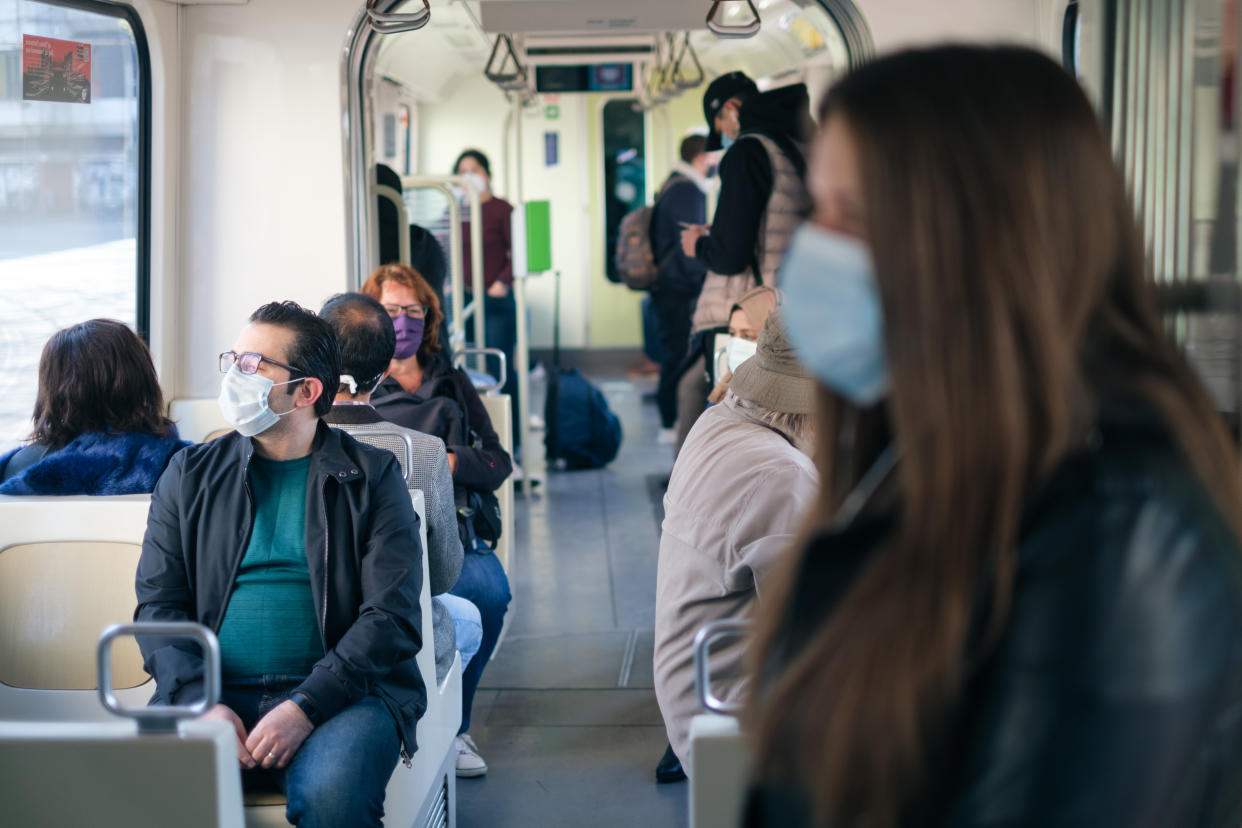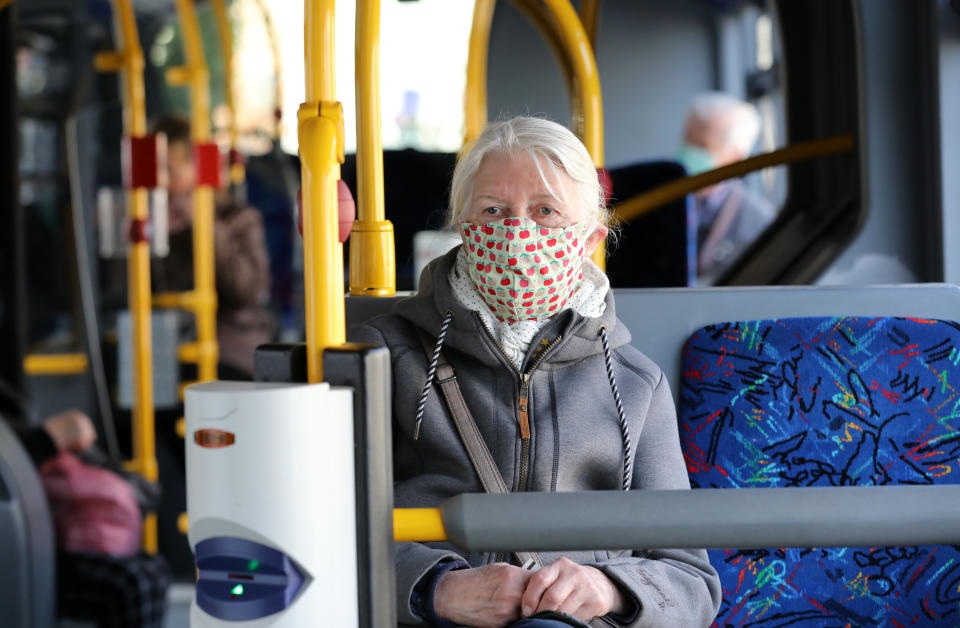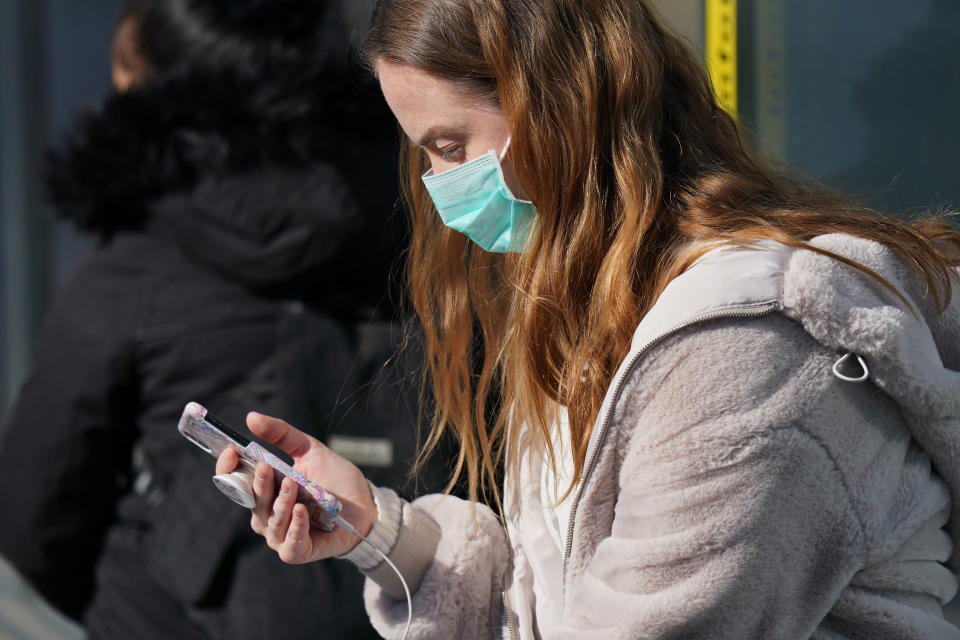‘Crises are not an excuse to lower standards’: Ethicists stress a coronavirus vaccine should not be rushed

Ethicists have warned the coronavirus crisis is not an excuse to lower standards when it comes to developing a vaccine.
Officials have suggested the UK’s lockdown will continue to some extent until a safe and effective jab becomes available.
Extreme measures mean Britons are only permitted to leave their home for “very limited purposes”, like shopping for essentials or to exercise.
Human trials into a potential vaccine have begun; however, scientists were upfront at the beginning that a jab would not be ready for this outbreak. One could become available, however, if the coronavirus turns out to be seasonal, like flu.
Pharmaceutical companies and universities around the world are working to develop a vaccine in record time, but some are concerned this could cause standards to slip.
Early research suggests the coronavirus is mild in four out of five cases, but it can trigger a respiratory disease called COVID-19.

Coronavirus: ‘Mistake’ to not evaluate vaccines properly
“All crises present exceptional situations in terms of the challenges they pose to health and welfare,” the ethicists wrote in the journal Science.
“But the idea that crises present an exception to the challenges of evaluating the effects [of] drugs and vaccines is a mistake.
“Rather than generating permission to carry out low-quality investigations, the urgency and scarcity of pandemics heighten the responsibility of key actors in the research enterprise to coordinate their activities to uphold the standards necessary to advance this mission.
“Crises are no excuse for lowering scientific standards.”
The ethicists – from Carnegie Mellon University in Pittsburgh and McGill University in Montreal – argued that many studies carried out at the start of the pandemic were poorly designed, “not well justified” and biased.
Latest coronavirus news, updates and advice
Live: Follow all the latest updates from the UK and around the world
Fact-checker: The number of COVID-19 cases in your local area
Explained: Symptoms, latest advice and how it compares to the flu
These were followed by a “deluge” of trials that duplicated past findings, some of which may have thrown up positive results by chance.
“Although crises present major logistical and practical challenges, the moral mission of research remains the same; to reduce uncertainty and enable care givers, health systems and policymakers to better address individual and public health,” wrote the ethicists.
This is not the first time an expert has warned against cutting corners.
“Make no mistake, it’s essential we work as hard and fast as possible to develop drugs and vaccines that are widely available across the world”, said Dr Shibo Jiang from Fudan University in Shanghai.
“But it is important not to cut corners.”
He pointed out a vaccine that aimed to prevent cats from catching a feline-specific coronavirus actually made them more susceptible.
The coronavirus is an RNA virus, which mutate almost constantly. In simple terms, RNA is a precursor to DNA.
“The virus might well mutate in ways that would make previously effective vaccines and antivirals useless,” said Dr Jiang.
“Despite the genuine need for urgency, the old saying holds: measure twice, cut once.”

‘Resist the temptation’ to carry out quick, low-quality studies
To combat these concerns, the ethicists want to see different treatments tested side by side. This would better allow experts to gauge the more effective therapy.
Doctors should avoid prescribing drugs off-label. This is when a medication is given in a way other than how it was approved. For example, for a different condition or at a varying dose.
The ethicists worry this could interfere with trial recruitment. Some studies stipulate people cannot take part if they are on, or have recently taken, another drug.
Medics should also “resist the temptation” to carry out trials without a control arm.
Randomised-controlled studies are considered the “gold standard” of research. A control trial means a drug is compared against a placebo or no intervention at all, if it is ethical to do so.
“Randomised” means the participant is allocated their trial “arm” by chance.
The ethicists also want to see different universities and research centres working together to speed up trial recruitment and “timely results”.
They have also discouraged the release of preliminary research.
“Rather than making public recommendations about interventions whose clinical merits remain to be established, health authorities can point stakeholders to recruitment milestones to elevate the profile and progress of high-quality studies,” wrote the ethicists.
“Rigorous research practices can't eliminate all uncertainty from medicine but they can represent the most efficient way to clarify the causal relationships clinicians hope to exploit in decisions with momentous consequences for patients and health systems.”

Will a coronavirus vaccine be ready in time?
No one can say for sure how the pandemic will play out, but scientists have been upfront that a vaccine will not be available during this outbreak.
“No manufacturer will be able to have a vaccine ready for the summer, or even by the autumn,” said Stephane Bancel, CEO of Moderna Therapeutics, which is working to develop a jab.
“The challenge is, it could quickly be given to millions of people.
“The responsibility for its safety is therefore very important.”
If the virus becomes seasonal, however, a jab could made be developed in time for the next outbreak or the emergence of another coronavirus strain.
The new coronavirus is one of seven strains that are known to infect humans.
Others cause everything from the common cold to severe acute respiratory syndrome (Sars), which killed 774 people during its 2002/3 outbreak.
“A vaccine is a long way off,” Dr David Heymann from the London School of Hygiene & Tropical Medicine previously said.
“There won’t be a vaccine for this outbreak but will be for other coronaviruses.”
Vaccines take time, with scientists having to prove they are both safe and effective.
This should ideally be demonstrated in the laboratory and among the community living in the midst of an outbreak.
The US Food and Drug Administration (FDA) follows a similar approval process for vaccines as it does for drugs.
Manufacturers typically have to first prove safety in a small number of “closely monitored subjects”.
The next phase involves “dose-ranging studies” in hundreds of people.
Finally, the jab is tested on thousands to provide “the critical documentation of effectiveness and important additional safety data required for licensing”.
The FDA can request additional studies or halt ongoing trials if it has safety or efficacy concerns.
To speed things up, the administration can grant priority review applications and “breakthrough therapy” designation.
This was the case with Merck’s Ebola vaccine Ervebo, approved on 19 December last year.
The FDA “worked closely with the company and completed its evaluation of the safety and effectiveness of Ervebo in less than six months”.

What is the coronavirus?
Since the coronavirus outbreak was identified, more than 2.9 million cases have been confirmed worldwide, according to Johns Hopkins University.
Of these cases, over 869,500 are known to have “recovered”.
Globally, the death toll has exceeded 206,600.
The coronavirus mainly spreads face to face via infected droplets expelled in a cough or sneeze.
There is also evidence it may be transmitted in faeces and survive on surfaces.
Symptoms include fever, cough and slight breathlessness.
The coronavirus has no “set” treatment, with most patients naturally fighting off the infection.
Those requiring hospitalisation are given “supportive care”, like ventilation, while their immune system gets to work.
Officials urge people to ward off the coronavirus by washing their hands regularly and maintaining social distancing.




